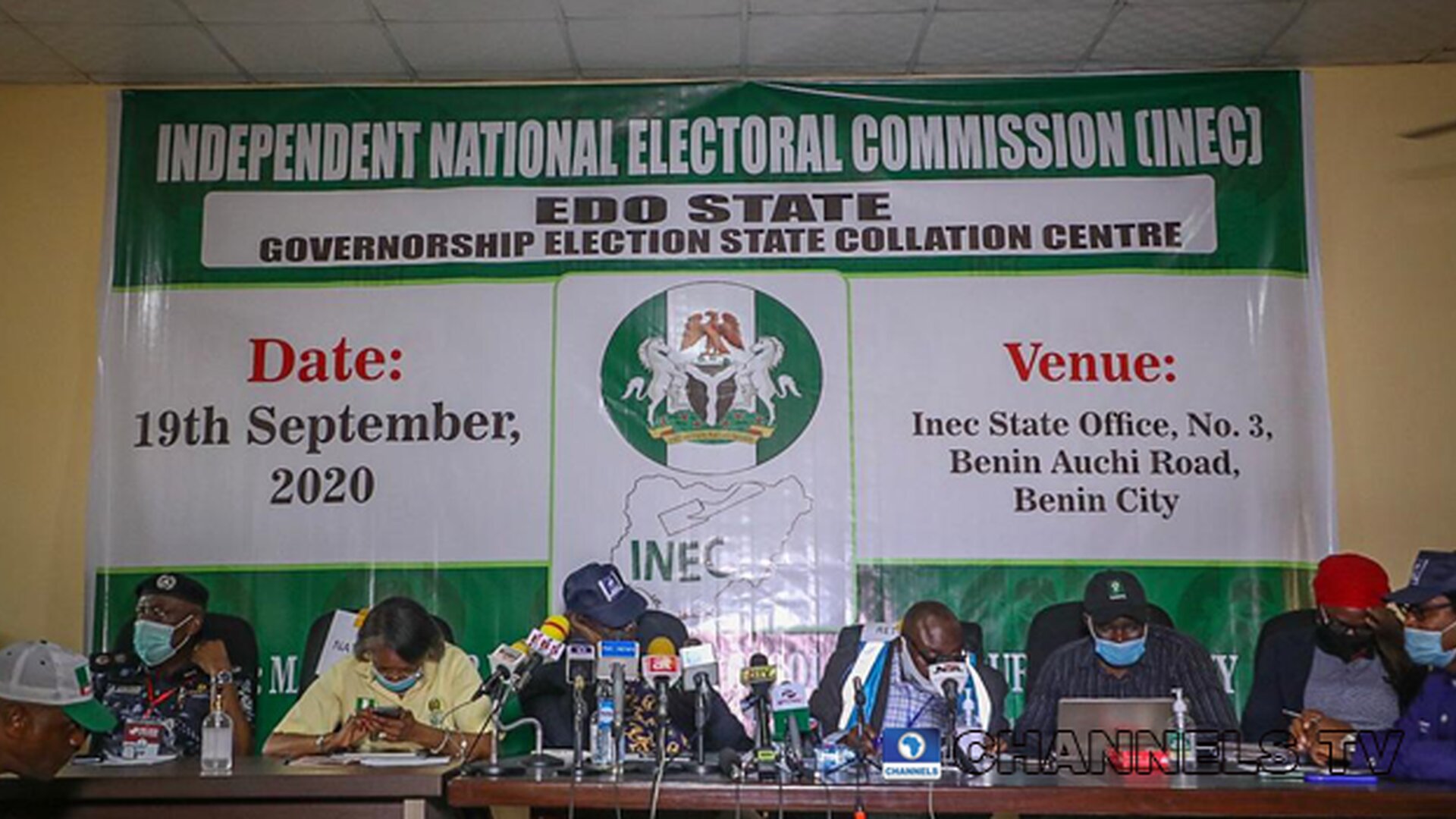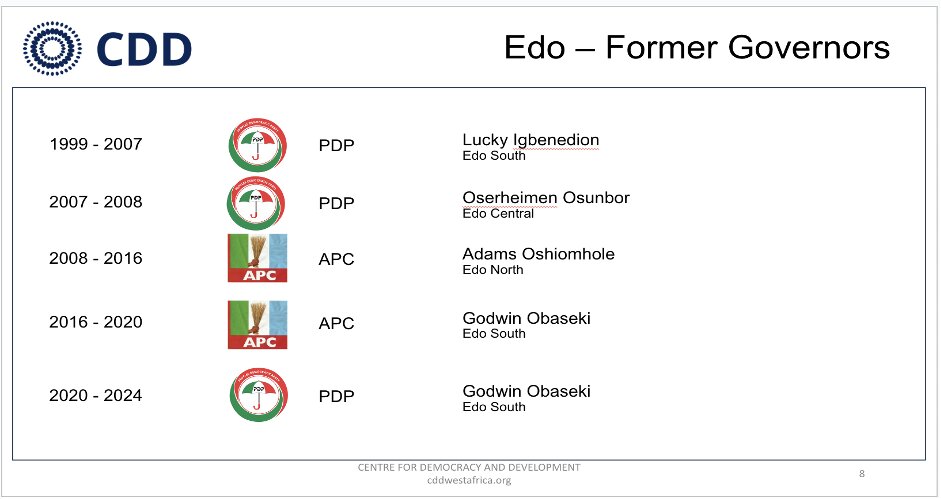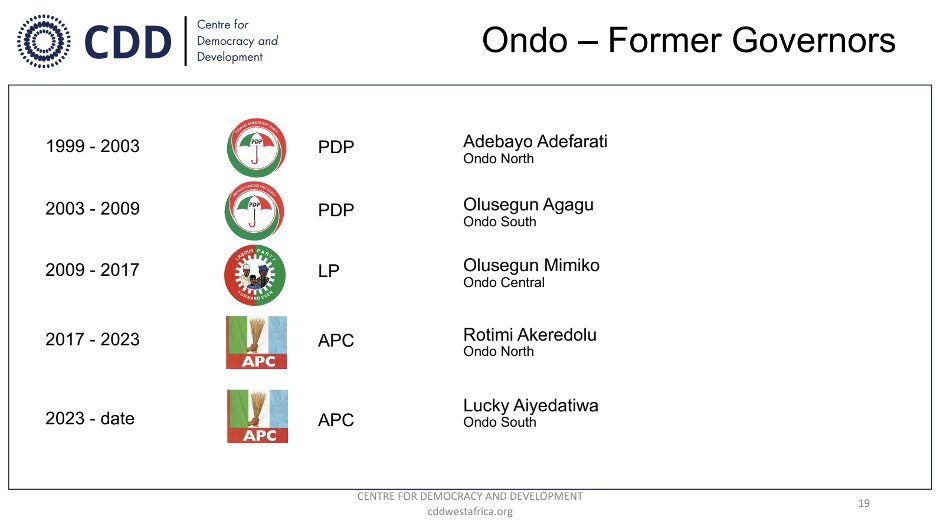
Another Off-Cycle Election Season in Nigeria
Nigerians in Edo and Ondo will go to the polls on September 21 and November 16, respectively, to elect state governors, a group that has become increasingly influential and powerful in the Fourth Republic. This leadership transition at state level has either led to sustained growth or unnecessary clashes between different groups seeking to assert control.
The polls in Edo and Ondo take on an outsized level of influence because they come near the mid-point of Tinubu’s term in office. As preparations already began for the 2027 general elections, these polls will be important indicators of public sentiment as they are expected to assess the popularity of the president, test the hold of the incumbent parties, and gauge the appeal of the third force in those states.
Off-Cycle but not out of sync
Off-cycle governorship elections in Nigeria were the result of judicial decisions that led to the removal of sitting governors. The beneficiaries were then opposition parties, and the then Action Congress of Nigeria can trace its strength in the South-West and eventual contribution to the ruling All Progressives Congress (APC) to a string of successes at the court, including Edo in 2007.
Adams Oshiomhole, who was the president of Nigeria’s Labour Congress, challenged the victory of the People’s Democratic Party’s (PDP) Oseihermen Osunbor and was declared the winner a year after the Edo elections of 2008. Likewise, over a decade before Peter Obi’s presidential bid brought the Labour Party (LP) back to the limelight, Olusegun Mimiko became the LP's first elected governor in 2009, when he successfully challenged Olusegun Agagu’s earlier declaration as governor in Ondo State.
While off-cycle elections might seem isolated from general elections, the relative ease of managing them—in comparison with general elections—allows them to serve as a test run for what may be available in subsequent general elections. The Bimodal Voter Accreditation System (BVAS), for example, was first deployed after its pilot stage during the Anambra state off-cycle election in 2021. But this isolated election period also means that there is an increased concentration of resources among target states. During general elections, parties have to rely on state leaders to lead campaigns and coordinate multiple areas of engagement. However, during off-cycle elections, political parties can easily devote considerable resources—even designating multiple governors on campaign councils for a single state—to ensure their victory. This leads to a much more contested election, with the potential to lead to undue violence and conflict.
Unfortunately, voter apathy is also a hallmark of off-cycle elections, and it is made worse by the limited attention paid by the national media to those states in the days preceding the polls.
Number Twos seeking the top job
One of the biggest stories of this election cycle is the different destinies of the two men who started last year as deputy governors. Both sought to advance to the top job, but while Ondo State’s Lucky Aiyedatiwa will take on his predecessor, Agboola Ajayi, from a position of strength, Philip Shaibu of Edo State’s fight with his incumbent resulted in his impeachment.
Philip Shaibu followed Godwin Obaseki from the APC to the PDP when the latter was denied a second term following a rift with former governor and party chair Oshiomhole. But the bond between both men that saw two successful bids in 2016 and 2020 was severed when Shaibu declared his ambition for the seat—against Obaseki’s preferred successor, Asue Ighodalo. Internal strife in the PDP, aggravated by the party's use of indirect primaries, worsened when Shaibu claimed that his delegates had been disenfranchised. This prompted him to hold parallel primary elections and declare himself the party’s candidate. The party, firmly under control by the governor, insisted on Ighodalo as its nominee. Shaibu’s running issues with the governor would come to a head with his eventual impeachment from office.
If Shaibu overstayed his welcome, perhaps he would have had a similar fate to Ondo’s Lucky Aiyedatiwa, who was a beneficiary of being in the right post at the right time. First, Agboola Ajayi, who served as deputy governor between 2016 and 2020, left the ruling party and waged a spirited but unsuccessful third-force bid against his principal’s re-election. This resulted in an opportunity for Aiyedatiwa to become the new deputy governor. Second, during a similar rift between governor and deputy over the former’s refusal to cede power despite the vacuum caused by his failing health, his opponents within the party and legislature were unable to impeach him. Ondo APC became divided along loyalty lines, with some factions supporting Aiyedatiwa's ambition to succeed the term-limited governors and others supporting aspirants with a stronger claim to the late governor's mantle. Third, Aiyedatiwa was still in post when Akeredolu passed away in December 2023, paving the way for this deputy governor to assume the top job and seek his own mandate from a position of strength.
All politics is local
A major component of political dynamics in Nigeria is zoning, where different subsets of the wider population take turns in power in a bid to avoid being dominated by another group. It will be the same in Edo and Ondo states.
A 2024 survey in Edo found that approximately 78% of registered voters supported zoning in gubernatorial elections. Yet, despite this widespread sentiment among voters, political parties did not take a definitive stand on the issue before the primaries. This situation led to increased cross-party campaigns to push for the position to move to Edo Central, since the district had only held the governorship for a solitary 18-month period since 1999.
Internal disagreements arose within the Edo APC, with some calling for open primaries and others pushing for zoning. This situation and the ensuing post-election crisis led to a rerun of the primaries. The Edo PDP was also embroiled in zoning debates. Obaseki also cited zoning sentiments as the reason for not backing Shaibu, from Edo North, and instead backing Ighodalo, from Edo Central. This zoning conflict is expected to affect Labour’s Olumide Akpata, who hails from the same local government as the incumbent governor and will face challenges for not respecting the clamour for equity.

Fig 1- Previous Edo Governors and Senatorial Districts
Similarly, in Ondo State, there is widespread agreement that it is time for the governor to come from the Ondo South senatorial district. Aiyedatiwa’s emergence as the APC's nominee sparked discontent among the other 15 aspirants, who alleged that the primaries lacked credibility and that some LGAs were disenfranchised.
This discontent may tie into the constitutional amendment signed by Muhammadu Buhari, which precludes a deputy who has completed his principal's term from running for office more than once. This means that if Aiyedatiwa wins the governorship election, his ambition may limit the southward zoning arrow to a single term. The arrangement pitted many southern political stalwarts against his candidature, and there may be an alignment with Agboola Ajayi, the PDP nominee, who enjoyed the support of the south in the 2020 gubernatorial election.
The PDP was quick to defer to the zoning considerations of the south, and the other aspirants who jostled for the PDP ticket immediately conceded to Ajayi with promises to support his ambition.
 Fig 2- Previous Ondo Governors and Senatorial Districts
Fig 2- Previous Ondo Governors and Senatorial Districts
Three questions before the elections
First, the keenly contested primaries might affect how strong parties might be in the elections. Shaibu has emphatically stated his refusal to support Ighodalo in Edo, which might help the APC in its quest to regain power. The Ondo APC must also work hard to ensure that the considerable opposition that Aiyedatiwa faced during and after the primaries will work for his re-election and not lead to the PDP's victory.
Second, the lack of seasoned veterans in some races means that the the outcome of the election cannot be predicted. PDP’s Ighodalo and Labour’s Akpata are well-known lawyers who have not held elected office before. Ighodalo has had to struggle with the perception of being a Lagos-based ‘foreigner’ seeking to return home and contest, while Akpata, a former Bar President, only just joined Labour and is dealing with accusations that he is only taking advantage of Edo’s support for Obi in 2023. Even the APC's Okpebholo is a first-term senator, finishing his first year in the Senate. It might result in Edo seeing Ighodalo and Okpebholo as proxies for Obaseki and Oshiomhole’s unresolved conflict that led to the former leaving the party for his re-election bid. And while Ondo is being contested by two former deputy governors, none has won an election in the state in their own right.
This will lead to a third factor – the impact of wider party debates on the conduct of the campaigns. PDP’s recent meeting of its executive committee extended its caretaker leadership, but there are questions about the influence of FCT Minister Nyesom Wike, a former Rivers State governor who fought his party’s presidential nominee, Atiku Abubakar, and serves in an APC cabinet. The unity of the party will be key if they are to retain an Edo or take control of an Ondo in the face of an APC desperate to make inroads in the South-South and South-West zone. The ruling party itself has faced some distractions, with claims of its national chair being removed and a federal government at the helm during challenging socio-economic downturns.
Finally, while Obi decisively won the presidential vote in Edo, his recent challenges with the party leadership might see a more detached role in the campaign, and it remains to be seen if his personal appeal can translate to an impactful endorsement in this race.
Off-cycle elections are a measure of party popularity in states where the ruling party is in power, and opposition parties strive to demonstrate that despite their absence at the federal level, their popularity at the state level remains significant. In addition to being an important state-level election, the elections in Edo and Ondo States will serve as a litmus test for the ruling APC's influence and popularity, as well as another opportunity for INEC to demonstrate to the electorate its ability to conduct elections in a highly charged environment, following criticism during the 2023 elections. Ultimately, it will be another clue to how Nigeria’s political environment has evolved.
Gbemisola Adebowale is a fact-checker at the Centre for Democracy and Development.
